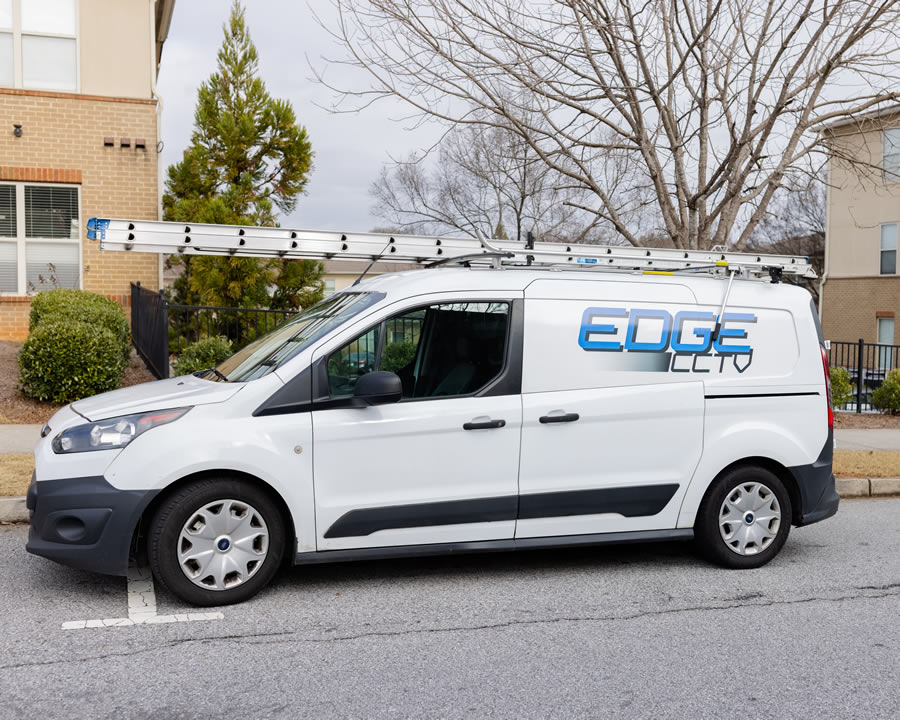
Security cameras are often vulnerable to environmental conditions, one of the most damaging being lightning strikes. When lightning hits a security camera or its wiring, it can instantly fry the circuits, rendering the camera useless and possibly affecting connected systems. At Edge CCTV, we provide security camera installation and maintenance services for local businesses. We enjoy helping our clients get the most from their surveillance systems, and we want to help you protect yours as well. Keep reading to understand why security cameras are susceptible to lightning and how you can take proactive measures to shield them from this natural hazard.
Contrary to popular belief, lightning doesn't strike at random. Rather, it follows the path of least resistance, which often involves elevated and isolated objects that can act as conductors. Security cameras are often mounted in such positions and connected to metal poles or structures, making them perfect candidates for lightning attraction. Having an understanding of these characteristics allows businesses to adopt strategic measures to mitigate the risks.
The first step in protecting your security cameras from lightning damage starts with thoughtful mounting and installation. Position your cameras in such a way that they are not the tallest objects in the area. Placing cameras lower on a structure and using non-conductive mounting materials like fiberglass or plastic instead of metal can reduce the likelihood of a strike. Also, consider installing lightning rods near the camera setup to divert lightning away from the equipment. Professional installation can ensure that your cameras are placed in the safest possible locations.
A well-grounded system can effectively divert the electrical current away from your equipment, sparing it from damage. To ensure the effectiveness of grounding, use a copper grounding rod driven at least 8 feet into the earth. Connect this rod to the camera setup using heavy-duty copper wire. The key here is to provide a more attractive route for lightning, guiding it safely into the ground and away from your valuable equipment.
While grounding can divert the electric current, surge protectors work to regulate the voltage that flows through your equipment. Surge protectors can be installed either at the electrical panel or directly at the point where the camera connects to the power supply. It's important to choose a quality surge protector that can handle the high voltages associated with lightning strikes. Make sure to regularly check and replace these devices as they can degrade over time. You can also use electrical switches to isolate the cameras during a storm manually, although this could leave you without surveillance for the duration.
Uninterruptible Power Supplies serve as your final line of defense in case of lightning. These devices can keep your cameras running during power surges or outages, ensuring continuous surveillance. While a UPS can't protect your cameras from a direct hit, it can certainly reduce the damage caused by voltage fluctuations. Choose a UPS that provides sufficient run-time to keep your systems operational until the power is restored, but don't rely on it as your sole protective measure.
Lightning strikes are unpredictable and potentially destructive so protecting your surveillance equipment is a must. If you’re in need of a repair or upgrade to your business security cameras, call Edge CCTV today. Our team is committed to the highest standards of installation, maintenance, and protection. Contact our office to learn more about our wide range of professional services or to schedule an appointment for your next security camera installation, repair, or replacement.
Managing overhead is a constant balancing act for business owners. Insurance premiums often sit at the top of that list, and they can be unpredictable.…
Read MoreEvery construction project is a race against the clock and the budget. Unfortunately, theft and vandalism can completely derail progress faster than weather delays or…
Read MoreStorage unit facilities face challenges that differ from other businesses. Properties are often spread out, minimally staffed, and filled with valuables that tenants expect to…
Read MoreAcross our country, churches and religious centers face a challenge that was once unthinkable. Sanctuaries that are built to be places of peace and refuge…
Read MoreLaunching a new commercial build is more than just a construction project; it is a significant investment that must be protected from day one. It's…
Read MoreRestaurants thrive on timing, teamwork, and precision. Every plate that reaches a guest is the result of a carefully coordinated effort between chefs, servers, bartenders,…
Read MoreOne of the most common challenges for retail management is keeping security consistent across all locations. As chains continue to grow, so do the number…
Read MoreFor property managers and apartment community owners, resident safety is not just a priority... it is a promise. When people feel secure in their community,…
Read More